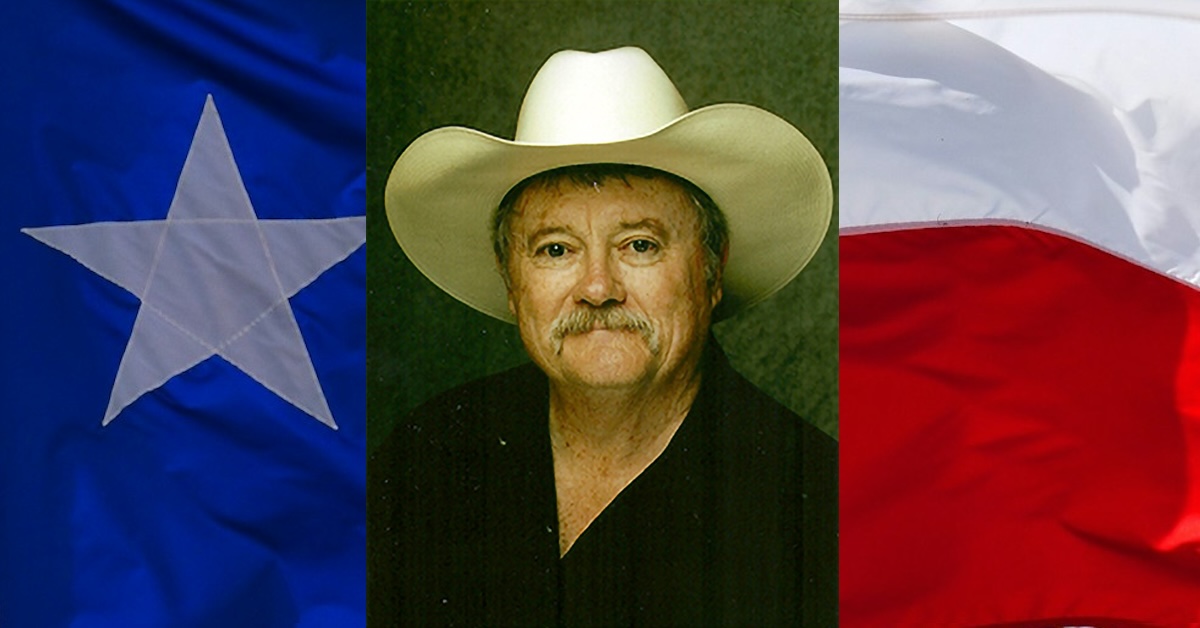MRFF celebrates Juneteenth!!! MRFF Board Member and Texan John Compere gives us the rundown on the history of our newest federal holiday’s Texas origins

JUNETEENTH – OUR NEW AMERICAN HOLIDAY
“JUNETEENTH” is our newest federal holiday originating in Texas and celebrated on June 19th. It is a colloquial combination of “June” and “nineteenth” and the oldest celebration of the end of slavery in the United States.
It officially recognizes June 19, 1865 – the date enslaved African-Americans in Texas were first informed of the implementation of the 1862 Emancipation Proclamation and their liberation from slavery. The 13th Amendment abolishing slavery followed on December 6, 1865. An estimated 250,000 enslaved people lived in Texas in 1865.
Commemorating the end of slavery in Texas, June 19th was originally observed by a Texas state holiday in 1979, and then recognized by the US Congress, 48 other states and the District of Columbia. The Juneteenth National Independence Day Act making June 19th our 11th annual federal holiday was passed by the Senate unanimously, the House of Representatives overwhelmingly and signed into law by the President in 2021. The holiday is a celebration of freedom, resilience and cultural heritage. It is intended to bring people together as well as raise awareness about this important day in black history. All 50 states and the District of Columbia now recognize it as either a holiday or special observance day.
The Civil War ended with the rebel surrender on April 9, 1865 at Virginia’s Appomattox Court House village. The last battle was fought May 12-13, 1865 in Texas on the banks of the Rio Grande at Palmetto Ranch east of Brownsville followed by the surrender of all rebel forces in Texas. Texas was on the western edge of the southern slave states, geographically remote, not a major battleground state and the last to recognize the lawful cessation of slavery.
Texas remoteness also prevented the “Underground Railroad” from being a reality. This coordinated abolitionist network hid escaped slaves in Southern states and arranged their travel to Northern states for freedom. Enslaved people in Texas had to find their own ways of liberation by escaping on foot, horseback or by wagon overland to Mexico where slavery was outlawed, to the Gulf of Mexico for boat passage to the Caribbean, or farther west across hostile and lawless territory. They seldom succeeded.
Union Army General Gordon Granger with 2,000 federal troops arrived at Galveston Island on June 18, 1865 to begin occupation of Texas. The next morning General Granger announced the total emancipation of slaves in Texas by reading and posting a military general order at his headquarters at Strand and 22nd Streets that stated in part “The people of Texas are informed that, in accordance with a Proclamation from the Executive of the United States, all slaves are free”.A State of Texas historical marker commemorating “Juneteenth” by the Galveston Historical Foundation and Texas Historical Commission is erected at the site.
American history tells us one of the first explorers of Texas was an African man named Estebanico (1500-1539). He arrived in Galveston with Spanish explorer Alvar Nunez Cabeza de Vaca and Spanish conquistadors in 1528. They explored and traveled throughout present day Texas and northern Mexico until 1534.
Texas history records the first Texas Revolution casualty to be Samuel McCullough, Jr. (1810-1893), an African-American freed slave and volunteer Texas soldier. He was wounded by a Mexican musket ball at the Battle of Goliad, survived and continued fighting for Texas independence. When McCullough completed his military service, he was awarded a Texas disabled veteran land grant near Von Ormy where he lived with his family and farmed for the rest of his life.
Following the Civil War, 52 African-American men were elected and served as Texas legislators during Reconstruction. They included lawyers, farmers, builders, merchants, teachers and preachers. All were Republicans, the party of Lincoln (Democrats were secessionists with the defeated Confederacy). The 15th Amendment to the Constitution gave men of all races the right to vote in 1870 (women were not allowed to vote until the 20th Century). The last of these historic Black leaders left office in 1897. They were overlooked when Texas history was written but are now resurfacing because of increasing interest in Black history.
The traditional beverage of Juneteenth is the “”red drink”, a highly sweetened, ruby-colored drink with a berry-citrus flavor, originating in West Africa. The red color symbolizes the blood and sacrifice of an enslaved people from the past.
For a sweeping history of Juneteenth and its importance in American history, the New York Times best seller “On Juneteenth” (Liveright/W.W. Norton & Company, 2021) by Texan, Pulitzer Prize winning historian, author and law professor Annette Gordon-Reed is recommended.
For an engaging introduction to the history of slavery and freedom for children, “Juneteenth: A Children’s Version” (Unity Unlimited Inc, 2021) by Texan and Presidential Medal of Freedom recipient Opal Lee is recommended.
Juneteenth was first celebrated in Texas. Freed men, women and children gathered in rural communities and freedom colonies to rejoice with parades, dances, hallelujahs, feasts, music, singing, grateful prayers and tears of relief. On the 160th anniversary, residual and regressive racism regrettably remains.
John Compere
Brigadier General, US Army (Retired)
Disabled American Veteran (Vietnam Era)
Board Member, Military Religious Freedom Foundation
Texas rancher
Recent Posts
- November 7, 2025 | No comments




They should also bring people’s attention to PTSD awareness day on June 27th.
Good idea, Old Soldier! But who should be doing the work of making Americans aware of PTSD Awareness Day? I can see religious groups having an interest, but somehow I don’t think it should be limited to them.
Ideas?